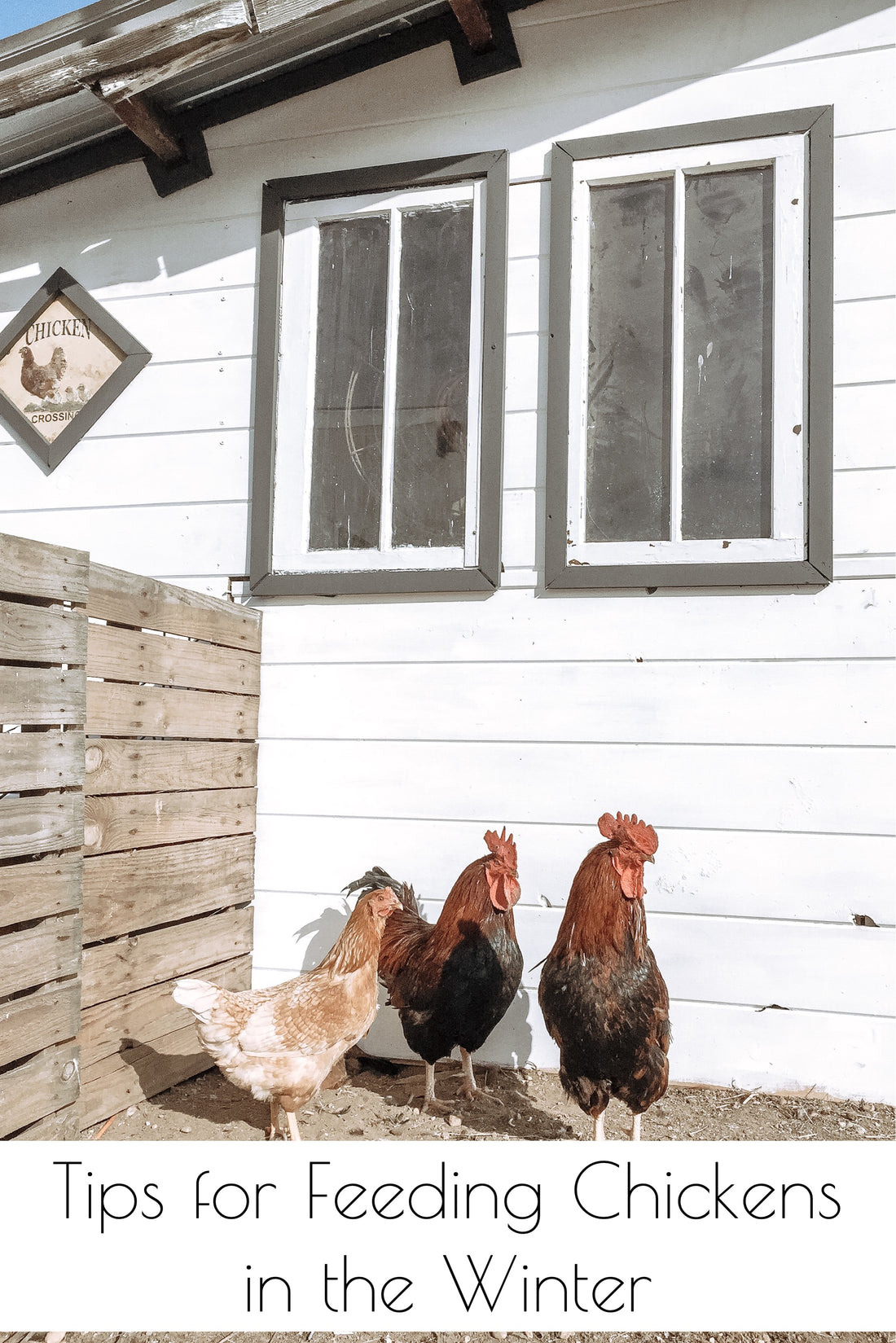
“More food, please”
During the colder months, chickens will need more food while they’re resting from summer and spring egg production. Adding an additional hanging feeder is generally sufficient enough, but, if you have it down to a science, it’s recommended to feed roughly 1.5 times the amount of food you would in the warmer months.
Ode to Oats
- In general, chickens will not overeat. As long as you are offering scratch grain seeds and grit, free choice, you should be able to avoid any crop or digestive issues. If you're upping their food intake too much, you might notice leftover food in the feeder in the morning.
Carbohydrates are very important in the winter, especially for hens as they're recovering from laying eggs over the warmer months. Oatmeal is a good source of carbohydrates, and can be served to chickens warm. You can offer it in a shallow pan or mix it into their feed, creating a mash of sorts.

The power of protein.
Protein will help with feather growth as some hens are most likely bouncing back from molting. Even if they aren’t molting, the added protein helps with egg production and overall health.
- Try switching from regular chicken feed to game bird grower feed. These types of food generally have extra protein.
We switched from Blue Seal Home Fresh Extra Egg Layer Crumble to Blue Seal Home Fresh Multi-Flock Chick N Game Starter/Grower - We added dry cat food to our feed mixture last winter and our egg production was out of control. Cat food is rich in protein and safe for chickens in moderation. Just make sure the cat cannot get into the chicken coop. If your cat goes into the coop searching for his food, he may behave in a predatory manner towards your chickens.
Hang it up
Hanging feeders are your best bet in terms of keeping feed from getting contaminated or knocked over and walked through, minimizing waste, and keeping unwanted pests and rodents out of the feed.
Do not feed chickens by sprinkling the pellets on the ground during the winter. This is not safe for your chickens and could result in food contamination. If you do not already have a feeder for your chickens, you can find the galvanized ones we use at your local tractor supply company store.

Hydrate
Keeping your birds hydrated in the colder months is just as important as their nutrition. Just like offering free choice feed, make sure your chickens have access to water at all times, doing your best to keep it from freezing during the day while the birds are most active.
- You can use a heated water bowl, which you can find at most pet stores. However these tend to get dirty from the birds scratching the ground. You can also place small rubber balls in the water, as long as you clean them first, if you live in an area with a slight breeze. The breeze will move the balls around, preventing the water from freezing, as well as encouraging the birds to peck at the ball, causing them to drink.
Supplying supplements
It may be a good idea to add supplements to your chickens' water during the winter, as this can help your chickens get the increased vitamins they need for their coats and feathers.
- We add Apple cider vinegar to our chicken’s water as it can lower the pH in their digestive tract, creating an unfavorable environment for intestinal worms and harmful bacteria. It can also kill dangerous bacteria in the throat that may cause respiratory illnesses. The ratio is 1 Tablespoon Apple Cider Vinegar per gallon of water.
- Black oil sunflower seeds contain oil and are a great source of fat, helping to add a little weight to birds as you go through the winter because the extra fat will translate into warmth when temperatures drop. If you do opt to add sunflowers to the diet of your laying hens, it is important to avoid going overboard. More is not necessarily better and sunflower seeds should not exceed 1/3 of a bird’s regular diet. That small amount truly is enough to make a world of difference, but not only to chickens. Cattle, horses, sheep, and other animals also both enjoy and benefit from sunflower seeds. You will notice things such as weight gain and shiny coats, but again, take care not to overfeed as sunflower seeds are rich in fiber and lignin which can amount to too much of a good thing.
There are plenty more resources out there for feeding and caring for chickens in the winter, the most important thing is finding what works best for you and your animals!

